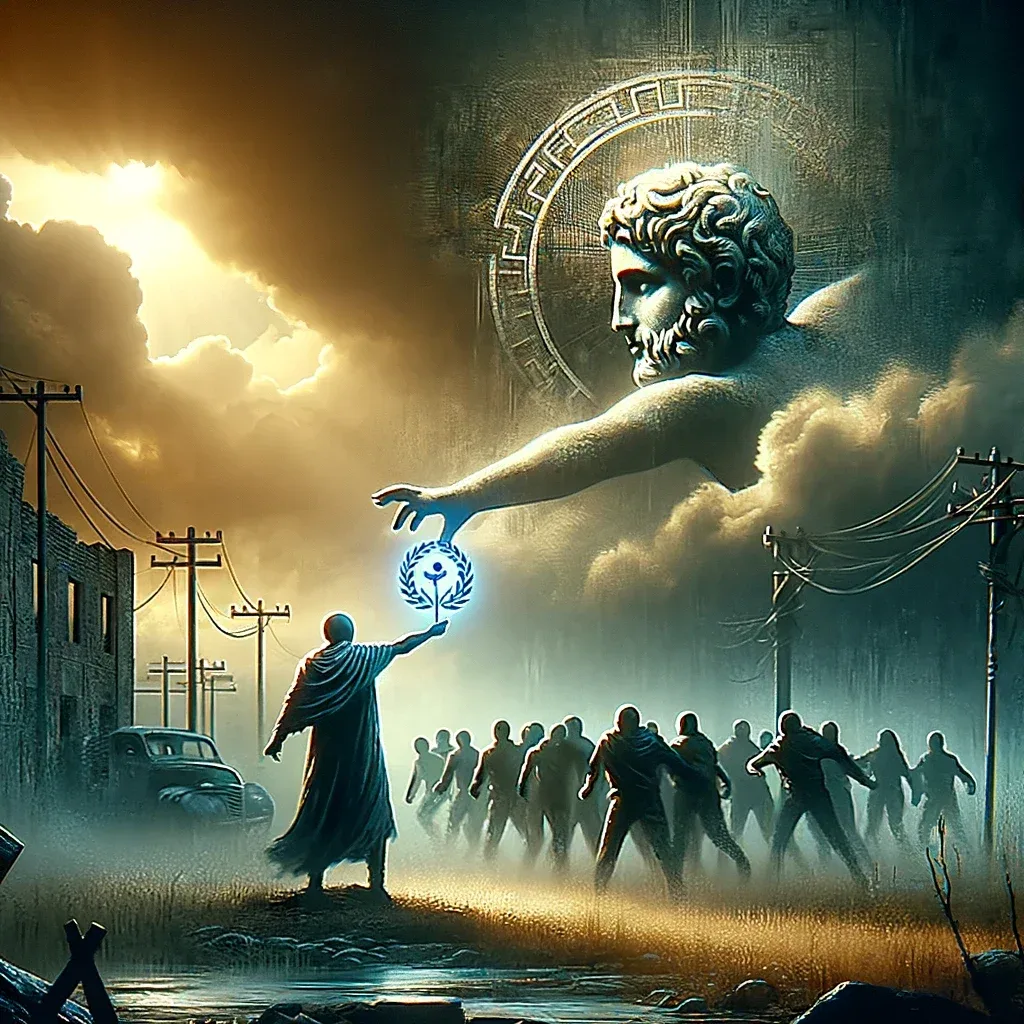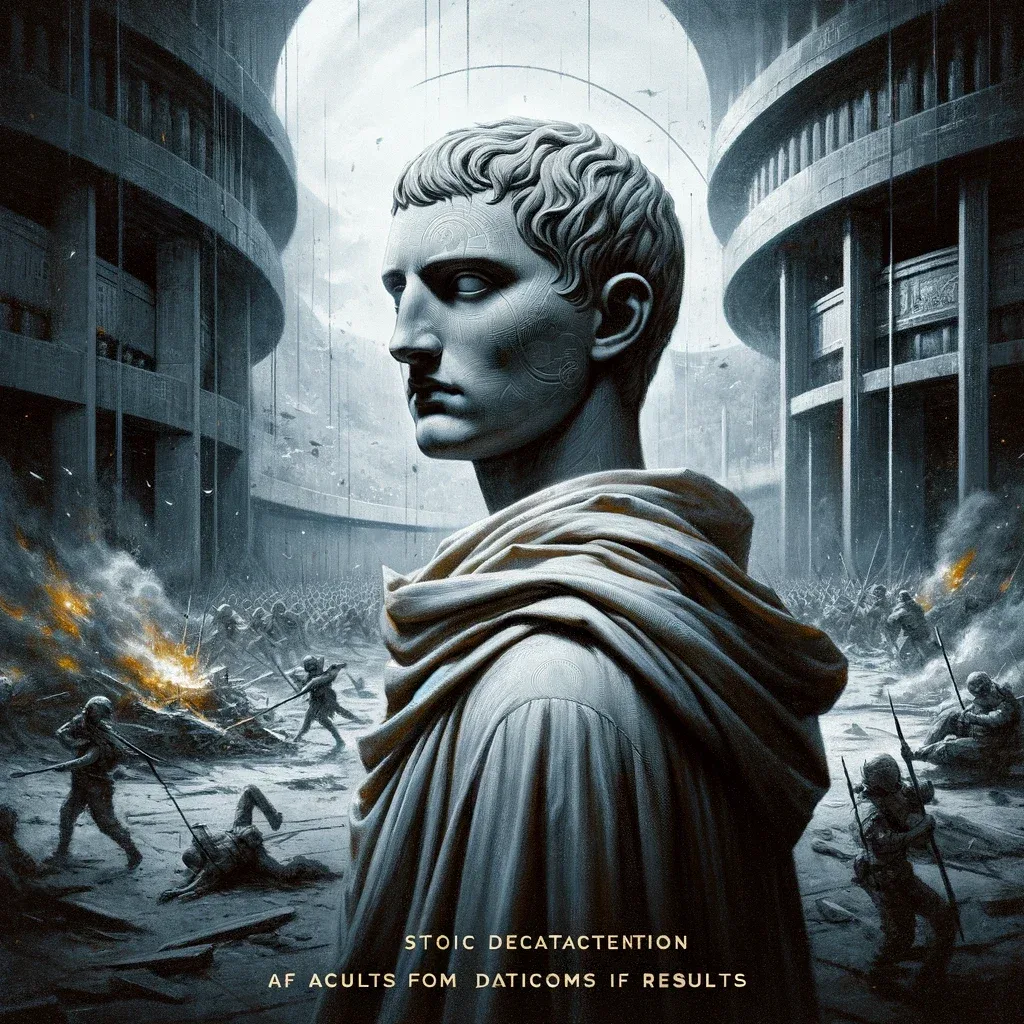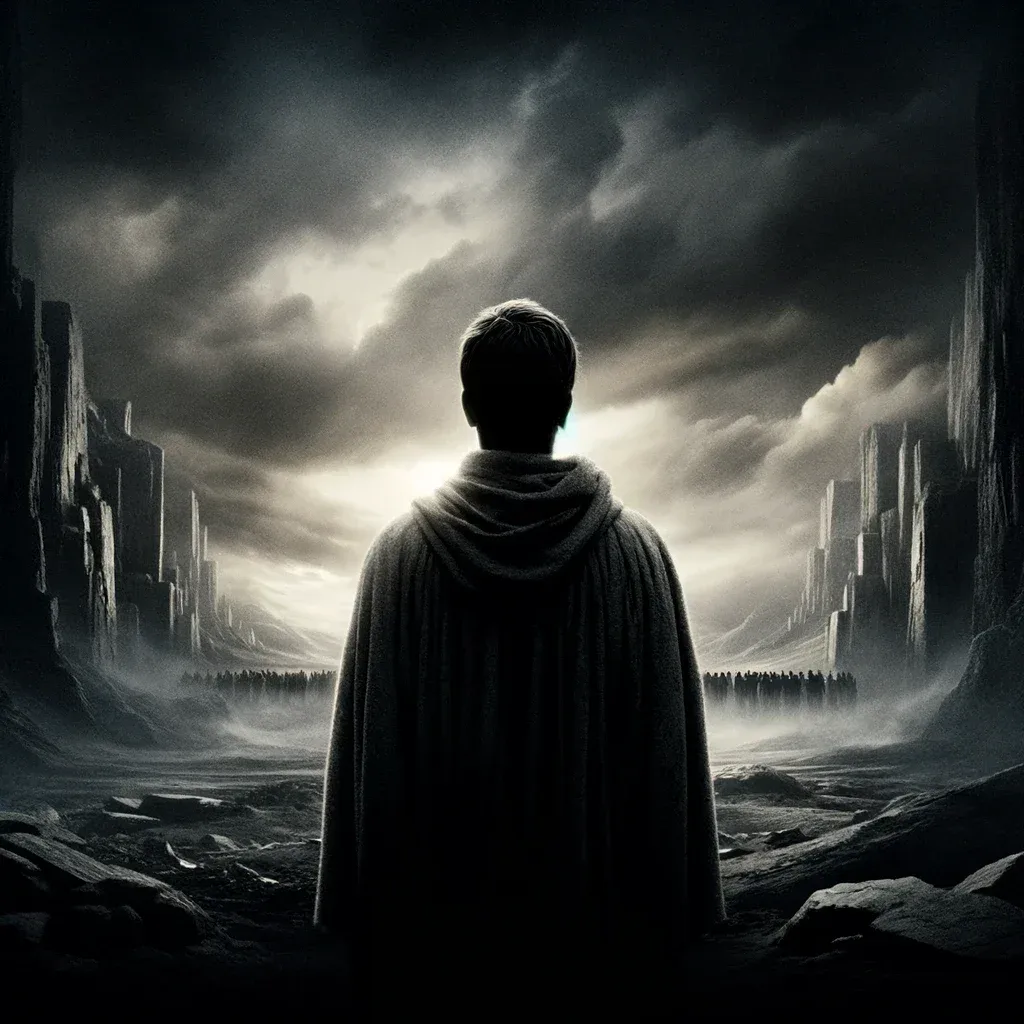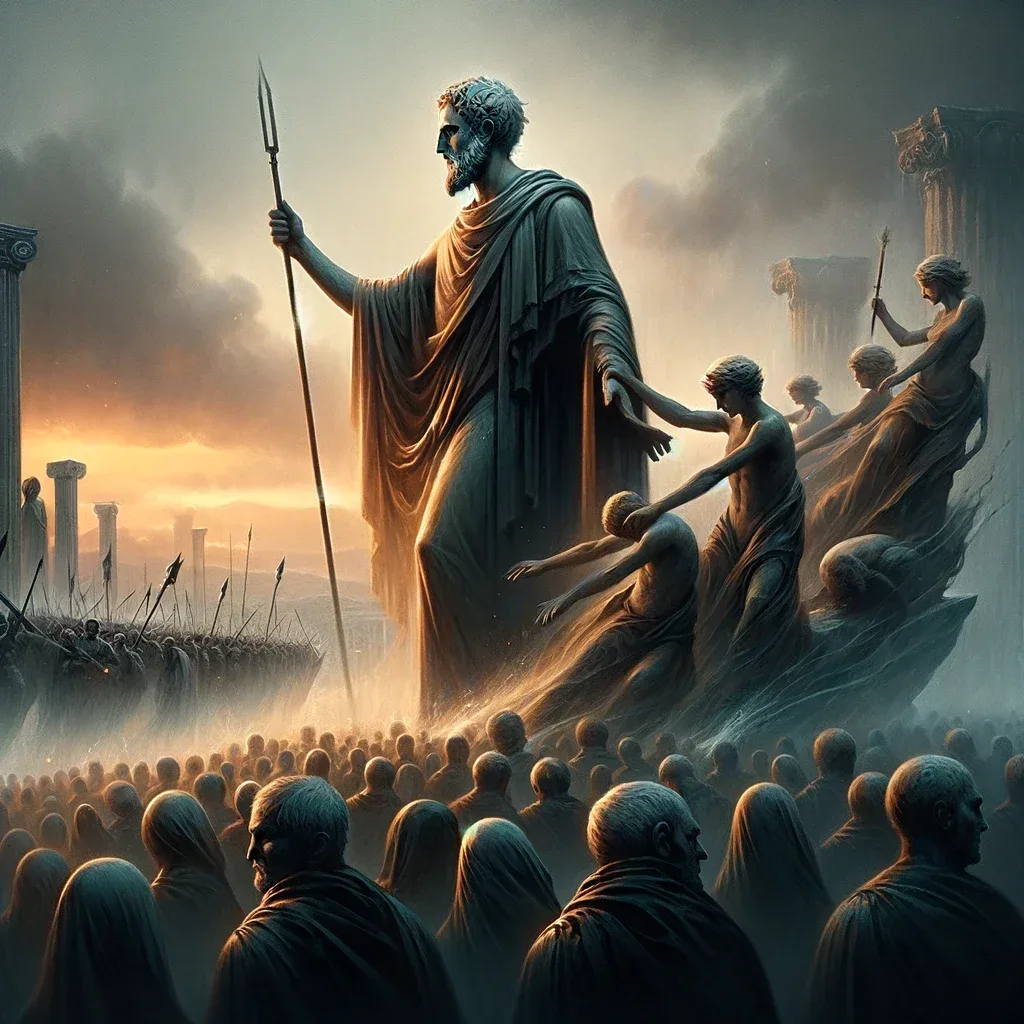The popular “Hunger Games” series, both in its books and in the film adaptation, offers more than an exciting dystopian narrative. Surprisingly, it has a deep connection to Stoic philosophy, a school of thought from Ancient Greece. This article explores the manifestations of stoicism in “The Hunger Games”, analyzing how the characters and plot reflect the Stoic principles of courage, self-control and resilience in the face of adversity.

Stoicism in the Struggle for Survival

Resilience and Emotional Control
Katniss Everdeen, the series' protagonist, exemplifies stoic resilience. Her ability to remain calm and rational in extreme pressure situations is a direct manifestation of Stoic emotional control. She faces unimaginable challenges with remarkable inner strength, remaining focused on her goals, a characteristic trait of Stoic philosophy.
Acceptance and Adaptation
One of the pillars of stoicism is accepting what you cannot control. In “The Hunger Games,” Katniss and other characters are forced to adapt to a brutal and unfair world. Their acceptance of the hostile environment and their ability to adapt and survive reflect a stoic acceptance of reality, however harsh it may be.
Facing Fear and Adversity
Stoicism preaches facing fear and adversity with courage. In “The Hunger Games”, the characters face their fears directly, often risking their lives for freedom and justice. This direct confrontation of fears and adversities is a clear reflection of Stoic teachings.
The Role of Virtue and Altruism

Virtue over Personal Advantage
In Stoicism, virtue is considered the greatest good. Katniss, for example, often chooses the path of virtue over personal advantage. His concern for the weak and his fight for justice reflect the Stoic ideal of living virtuously, regardless of personal consequences.
Altruism and Community
Stoicism also emphasizes the importance of collective well-being. In “The Hunger Games,” we see characters like Peeta and Katniss risking their lives for the greater good. They act not only out of self-interest but also for the good of the community, reflecting the Stoic idea that we are all parts of a greater whole.
Leadership and Moral Responsibility
The leaders in “The Hunger Games,” especially Katniss, often demonstrate strong moral responsibility, a key Stoic principle. They make difficult decisions, placing morality above personal convenience, reflecting the Stoic teaching that true leadership is based on virtue.
Detachment and the Stoic Perspective

Detachment from Results
A central concept of Stoicism is detachment from results. In “The Hunger Games,” Katniss does not fixate on the results of her actions, but focuses on doing what she believes is right. This approach is a direct application of the Stoic principle of focusing on the present and actions, not results.
Finding Inner Peace
Despite the chaos around them, Katniss and other characters find moments of inner peace. This is consistent with the Stoic pursuit of serenity regardless of external circumstances.
Stoic Perspective on Death
Stoicism teaches a calm acceptance of death. In “The Hunger Games,” this acceptance is evident in the way the characters face the constant possibility of death while maintaining their integrity and humanity.
Conclusion
“The Hunger Games” is more than entertainment; is a fascinating study of Stoic principles in action. The series offers a window into understanding how ancient Stoic philosophy can be relevant and applicable in even the most challenging scenarios. The characters exemplify the strength, courage, and integrity that Stoicism values, providing valuable lessons on how to face adversity with dignity and moral strength.
Introduction to the FAQ
This FAQ was created to clarify common doubts about the article “The Stoicism present in The Hunger Games”. Here, we will address issues related to the application of Stoic principles in the series, their relevance to the characters, and how these concepts are reflected in the plot and the challenges faced by the characters.

Stoicism in The Hunger Games FAQ
1. How does the character Katniss Everdeen exemplify Stoic principles?
2. In what ways do the characters in The Hunger Games practice stoic acceptance?
3. How are altruism and virtue approached in the series in relation to stoicism?
4. What does the series reveal about the stoic detachment from results?
5. Does the series address the Stoic perspective on death?
6. How are leadership and moral responsibility represented in the series?
7. How important is resilience for the characters?
8. How does the series illustrate the Stoic philosophy of facing fears?
9. In what ways does the series demonstrate Stoic emotional control?
10. How relevant is stoicism in The Hunger Games to modern audiences?
This FAQ offers an in-depth look at how Stoic teachings are woven into the narrative of “The Hunger Games,” providing a richer understanding of the series and its underlying themes.






